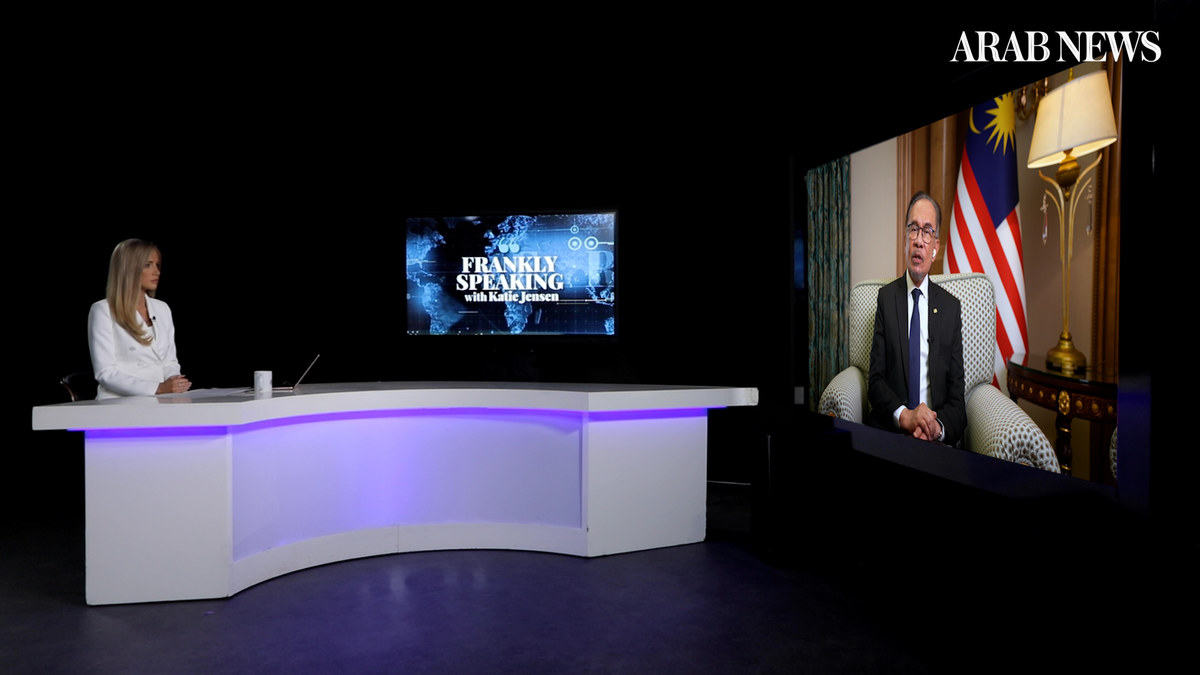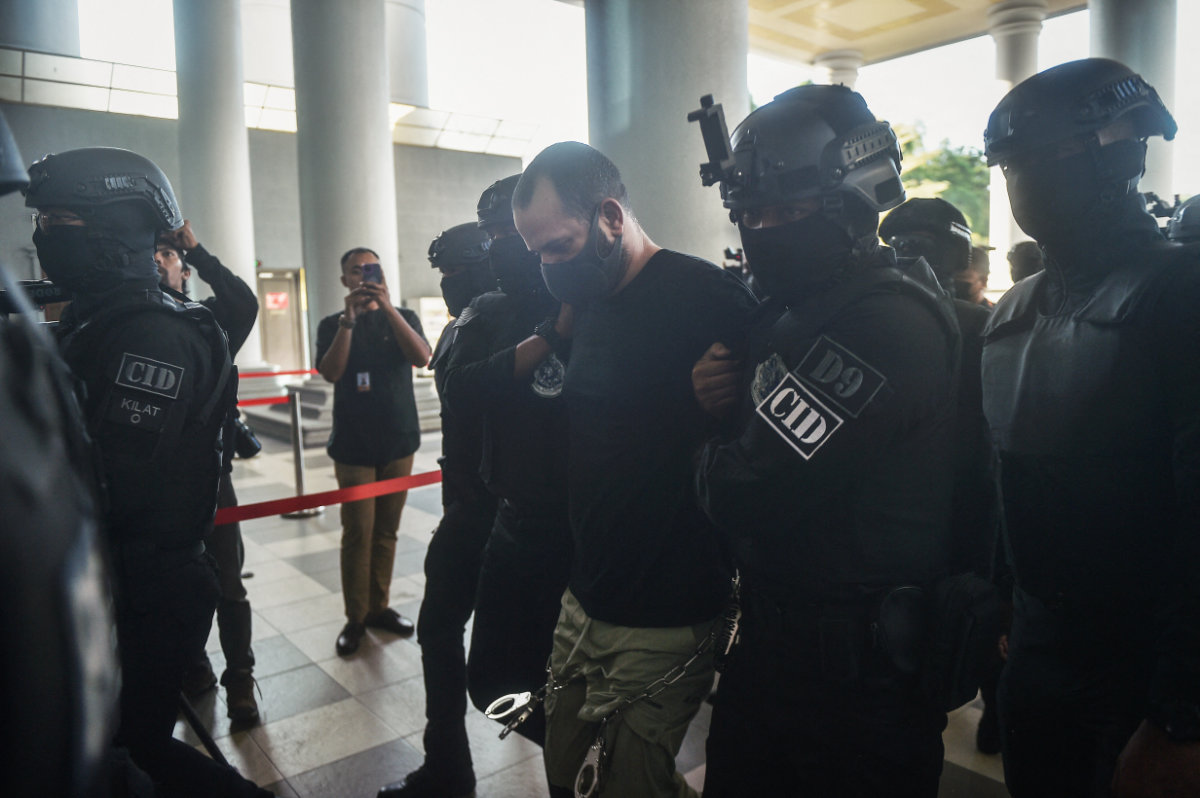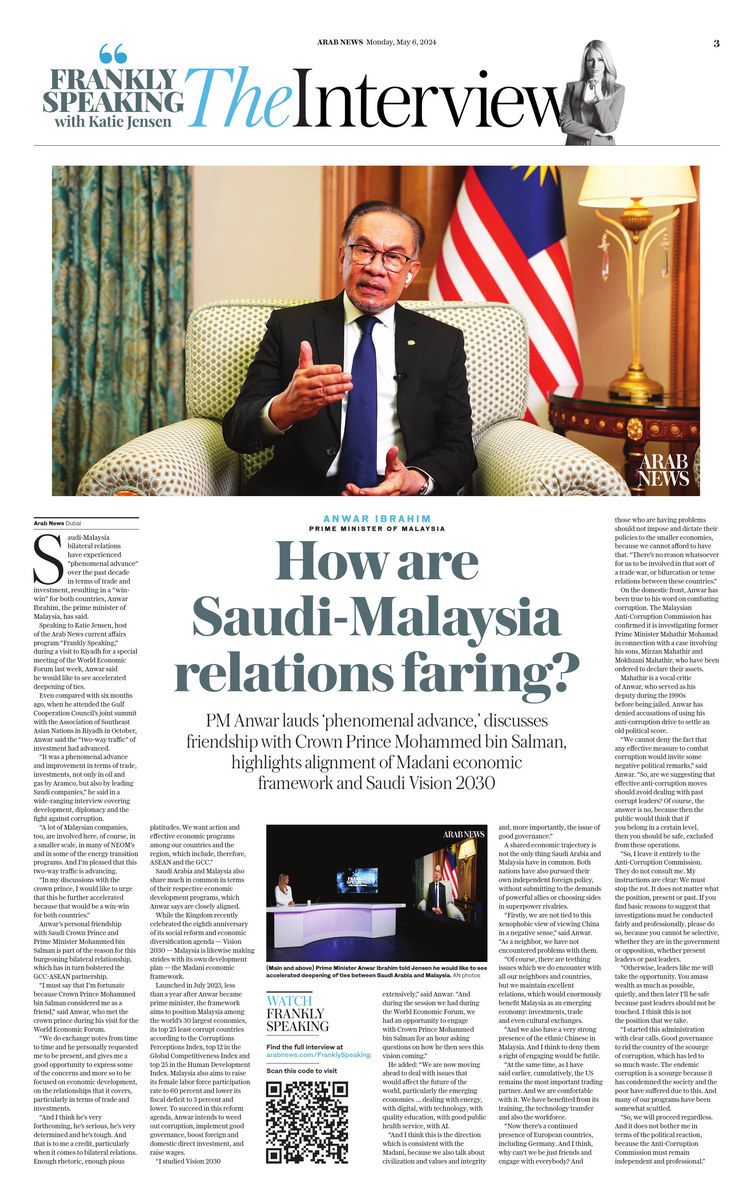DUBAI: Malaysia takes a strong stance on the war in Gaza and condemns the “sheer hypocrisy” of Western countries over the ongoing Israeli killing of Palestinian women and children, Prime Minister Anwar Ibrahim has said.
Speaking to Katie Jensen, host of the Arab News current affairs program “Frankly Speaking,” during a visit to Riyadh for a special meeting of the World Economic Forum last week, he said that a failure to prevent genocide in Gaza could foster extremism.
“We have issued statements to suggest that their genocide must end,” Anwar said in an interview that can be read in full on page 3.
“And it’s sheer hypocrisy for countries, some countries in the West, including the United States, to deny these continued killings of children and women and civilians.
“Whatever your political position is, I don’t believe that in this period we can condone these sort of inhuman, barbaric acts against fellow human beings. And I think that position is clear. Our position is very strong in that direction.

Anwar Ibrahim was speaking to Katie Jensen, host of the Arab News current affairs program “Frankly Speaking,” during a visit to Riyadh for a special meeting of the World Economic Forum last week. (AN Photo)
“I know for an emerging, developing country, it may sound a bit too harsh, but then how do you condone continued killings of women and children? There’s no other way except to at least express in the very strongest terms possible.
“I appreciate the role of the Arab neighbors and Turkiye and Iran and all these other countries trying to do their part. And I think we in Malaysia and many other countries outside the region, too, are expressing gross concern because people are feeling enraged.
“And we don’t want this to prolong, because it will only lead to groups to foster fanatical extremist or terrorist action in the absence of the failure of the international community.”
According to recent reports, the prosecutor of the International Criminal Court may soon issue warrants for the arrest of Israeli Prime Minister Benjamin Netanyahu and Defense Minister Yoav Gallant on charges of deliberately starving Palestinians in Gaza.

Malaysian PM Anwar Ibrahim said he would support calls for the arrest of Israeli ministers, in reaction to reports that the prosecutor of the International Criminal Court may soon issue warrants for the arrest of Israeli PM Benjamin Netanyahu (L) and Defense Minister Yoav Gallant for war crimes in Gaza. (POOL/AFP/File)
If the ICC rules that genocide is taking place in Gaza, Anwar said he would support calls for the arrest of the Israeli ministers.
“I don’t believe that any reasonable person could dispute the incontrovertible effects adduced to support their allegation that genocide has been committed,” he said. “Once it is established that genocide happened, then of course the warrants have to be issued.”
In Kuala Lumpur, a trial is currently taking place after an Israeli national was arrested on March 28 suspected of entering Malaysia to assassinate a compatriot. He was found in possession of six guns and some 200 rounds of ammunition.
The case has raised speculation as to whether the man, named by local authorities as Shalom Avitan, was in fact a spy.
Asked whether any proof had been found connecting the Israeli national to espionage or organized crime, Anwar said investigations were ongoing.

An Israeli man identified as Shalom Avitan (C) is escorted by Malaysian police upon his arrival at a court to face charges of possessing six handguns and 200 bullets in Kuala Lumpur on April 12, 2024. (AFP/File)
“They have not established the fact that whether this criminal is a spy, but certainly the actions, the movements, the amount of weapons and the link networking within the country is of course concerning,” he said.
“And the authorities are taking tough measures to make sure they get to the bottom of it.”
On whether an independent Palestinian state is likely to come to fruition this year from the ashes of the Gaza war, Anwar said no country — including the US — has the right to deny the resounding global support for Palestinian statehood.
“There are 139 countries that have given recognition to the state of Palestine,” he said. “Now, why must one or two countries consider them above all these considerations and refuse to accept this?
“And to my mind, it is dishonorable to deny the right, not only of Palestinians but of the international community when they decide after years or decades of deliberations, looking at the facts, looking at historical decisions, looking at the precarious position now on the issue of security of the region, issue of economic progress.
“After all these considerations, 139 say, yes, we must recognize the existence of the state of Palestine. I don’t believe any country has the right to deny the sentiments, aspirations of the world.”
























